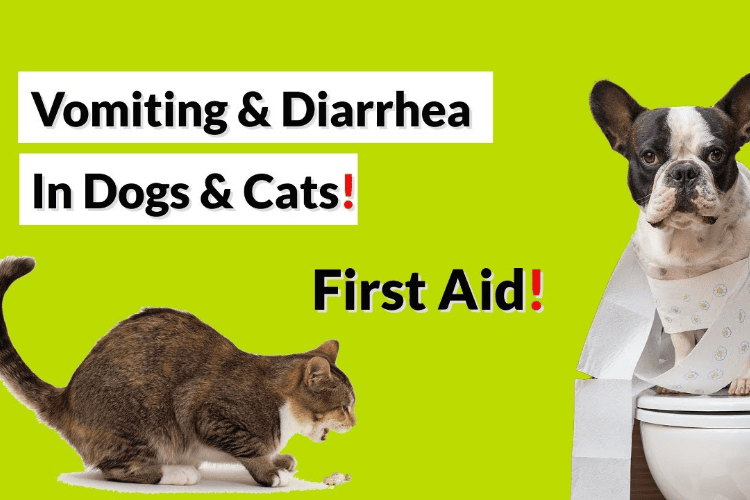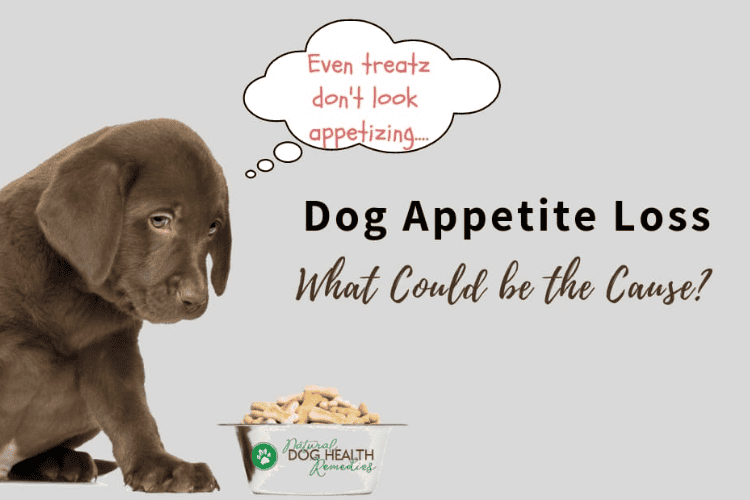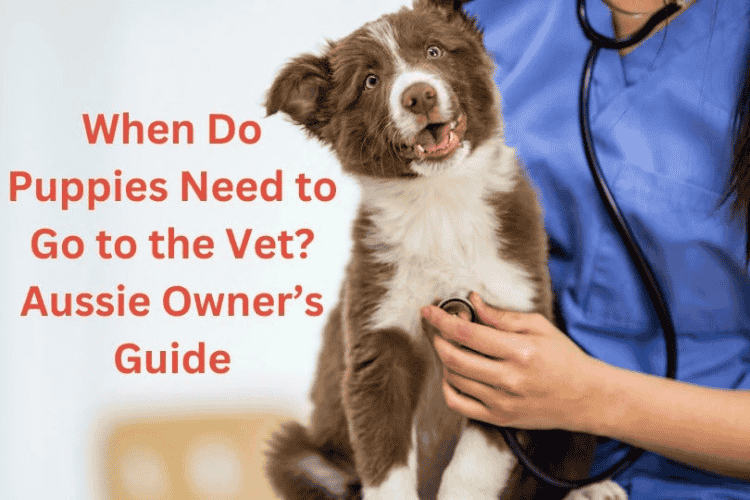Hello people! Do you know if your Pet Requires the Attention of a Veterinarian Immediately?
One of the primary duties that anyone who owns Dog Breeders pets can be called upon to perform best is keeping their pets healthy. Sometimes, in fact, your pets are only playfully happy or maybe even just energetic and are all together healthy.
In the article you will read, you will learn about the seven symptoms that indicate your pet needs vet attention now, the need to act fast, and how speed to a veterinarian can be life-saving for a pet.
Let’s dive in!
Table of Contents
Severe Vomiting or Diarrhea

Vomiting and diarrhea are rather vague signs in dog breaders pets, which may be caused by various diseases, from mild gastrointestinal discomfort to severe life-threatening diseases. Little vomiting or diarrhea may be quite harmless; a child with one about vomiting or occasional diarrhea does not need to be taken to the doctor.
`But if the vomiting or diarrhea continues for more than a day or is intense or accompanied by other signs, it is best to consult with a doctor.
Why It’s Urgent
The worst of the lot for any vomiting or diarrhea spell must be that one: dehydration. A pet can easily get dehydrated, ranging from kidney failure to electrolyte imbalances, not to mention shock.
These symptoms may indicate a mechanical bowel obstruction, toxicity, inflammation or infection, or parvoviral disease, especially in puppies.
A survey by the American Veterinary Medical Association shows that vomiting and diarrhea are among the top five causes of rush to an emergency veterinary clinic.
What to Look For
They vomit severally within a day or vomit large volumes of the food that they may have ingested.
- Fecal water, blood, or mucousy rhythm
- They include sore gullets, fatigue, sleepy looks, and pinched eyes.
- They are vomiting and have diarrhea, or they cannot eat or drink due to nausea.
- Any of the signs mentioned should be explained to your vet immediately.
Difficulty Breathing
Breathing that can be observed in Dog Breeders usually signals that the pet should go to a vet. Respiratory distress may originate from a wide range of disorders, such as heart failure, asthma, pneumonia, toxins, and tracheal stenosis.
Why It’s Urgent
- Breathlessness means the body has low oxygen, and if not corrected, organs will shut down, and in severe cases, the brain will be damaged. It could also be termed heart failure, where the heart cannot deliver enough oxygenated blood to the human body’s tissues.
- The untreated severe breathing disorder causes hypoxia of tissue, meaning the animal is either unconscious or choked to death.
What to Look For
Rapid or labored breathing:
Dyspnea occurs when the cat breathes at a slow rate or opens its mouth; otherwise, if a cat begins to pant, it is a sign that something is wrong.
Nk-gang
If the mucosa of the gum or tongue appears bluish or grayish-pale, then the patient is oxygen-deprived.
Here is staking, choking, and passing out of breath:
If one of your animals of Dog Breeders shows these symptoms, it should be examined by the vet or taken to an emergency animal hospital immediately.
Pain in the Body
Animals, in general, are especially challenging to diagnose for pain because, like most animals, they do not display signs of pain to prevent them from being weakened.
However, behavior change should be gradual; if the change occurs suddenly, the animal may be in much pain.
Why It’s Urgent
- They say that vivid pains indicate there are some grave bodily conditions, fractured skull or ribs, or some internal injuries. Severe pain may be caused by such conditions as acute pancreatitis, bladder stones, ruptured discs, etc.
- and the condition, if treated, may lead to tissue necrosis. Other conditions, such as toxic ingestion or infection, may provoke such changes
What to Look For
Getting angry, shouting for something they don’t want, hiding, or running to another room to be alone
Whining, panting, or shaking:
Any development involves putting more force on one part when the other is expected to do the work or vice versa.
- I can hardly either stand or walk.
- If you are experiencing some of the symptoms of Dog Breeders listed and your pet is unhappy and seems stressed, your pet needs to be checked by a vet.
Heavy Accidents or Wounds Keep Bleeding

Petting is usually inevitable; however, if your pet is bleeding excessively or has lesions that do not stop after a few minutes, then you know something is wrong somewhere.
Severe hemorrhaging is dangerous for human health if the issue is not addressed.
Why It’s Urgent
Severe bleeding can cause a situation referred to as shock or failure of organs of the body, and even death may result.
Some may affect deeper structures, such as arteries or veins, making open surgery necessary to control bleeding.
are situations in which your pet must have an over-normal tendency to bleed. For instance, blood clotting disorders such as hemophilia are more common in some dog breeds.
What to Look For
Vaginal bleeding after four weeks, which does not resolve with simple pressure for about 5-10 minutes
- Bleeding at the nose, mouth, or through the anus
- Open injuries or deep injuries are cases that would suggest an infection.
- Pale gums or indication of shock (low pulse rate, tendency to drowsiness, or noisy breathing).
- Administer first aid with minor injuries, but for continuous bleeding or deep injuries, go to the vet immediately.
Certain indications given below are clear signs that a pet is not well: unable to urinate or defecate because of a blocked urinary tract or Intestinal blockage/ Poisoning.
Urinary blockages are dangerous to male cats, but they can also affect cats and dogs.
Why It’s Urgent
This may lead, within 24-48 hours, to kidney dysfunction, a ruptured bladder, or even death if the blockage of the urinary tract is not addressed.
The adage that too much can kill you is relevant when people remain constipated OR even if suffering from intestinal obstruction, as this condition might lead to a perforation of the intestines, septicemia,
OR even an infection in the blood, almost invariably fatal in its early stages unless the sufferer consults with a doctor.
Urethral obstruction in male cats is also among the most common and severe pathologies ever reported by the Veterinary Emergency Group.
What to Look For
Inability to defecate or micturition is known as:
Especially when suffering from a urinary or bowel complaint, the desire or need to cry or to strain during such a process.
- Diarrhea, vomiting, signs of exhaustion, refusal to eat, and signs of renal failure.
- Hypogastric tenderness (In cases with a blocked urinary or intestinal system).
If your pet cannot urinate or defecate, call for an emergency with your veterinarian clinic or a hospital.
Seizures or Convulsions
Focal seizures are a neurological emergency in small animals and are commonly observed in different species of pets.
Whenever your pet has a seizure, you may panic, but it’s crucial to learn what might cause it and how to manage it.
Why It’s Urgent
There are many associated medical conditions with seizures. Others are tumors, trauma, toxins, or epilepsy. We can cause them by things like, ‘The diseases include tumors, trauma or toxins, epilepsy.
Recurrent status epilepticus or status epilepticus that has persisted for more than five minutes is likely to lead to brain injury,
which must be managed and especially when it comes to toxicity, seizures suggest poison intake, but further action would prevent the consequences in the future.
What to Look For
An aimless movement that centers on tremor-free and random contractions, together with convulsion.
Slight temporary pallor, fainting, and also rigidity of the musculature.
Rabid animal-like symptoms
The agent is experiencing white foam output from the mouth, either at the corner of the mouth or excessive foam output. The patient has twisted eye movement.
Fainting or post-seizure confusion Abdications To be precise, as an adult, one relinquishes certain privileges and rights relative to the condition and undergoes demotions because of seizures.
For instance, if a pet has a seizure, one should tend to the pet throughout the seizure. Also, it is all right to notify the veterinarian when a seizure occurs.
Lethargy and Loss of Appetite
Small oscillations are normal and occur periodically, while dangerous characteristics appear if and only if the former is linked to the latter—deprivation of hunger.
The symptoms most likely to be common include these: It reveals itself in signs like tiredness, loss of appetite, low energy, sadness, and, in some extreme cases, convulsions.
However, it can accompany life-threatening diseases like Kidney disease or Kidney failure, liver disease, heart disease, and cancers.
Why It’s Urgent
The early symptoms are anorexia and lethargy; these are options for severe diseases that need to be treated as soon as possible.
The affected pet may be unable to take any food or water; if it cannot swallow, the concerned pet becomes malnourished and experiences worse effects.
What to Look For
Pain (Healthy dogs and cats that are active will become less mobile or begin lameness one day).Fasting, comprising eating no food or drink, including water, for a complete day or night
The following people are excluded from skin examination
Caked skin, peeled skin, rough skin, thin or pale skin, gum line with dusky blue, yellow or gray, hollow and receding eyes, dry and shriveled lips, collapsed and sunken nose bridge and tented skin of the face.
Sudden from the word sudden; Famished means to be hungry or starved.
Statistics
As Pet MD mentioned above, fatigue and anorexia were reported as usually claiming the 10th position out of ten typical reasons why a pet turned to the emergency clinic.
When any of the above signs are present, it’s important to seek medical advice from a vet..
Conclusion
It is, therefore, important to mention some signs that your pet requires emergency veterinary attention to prevent poor outcomes and loss. Anything concerning vomiting or breathing issues means early treatment is all that is required.
It is for this reason that as proud caretakers of pets, we should understand some of the signs indicating diseases and when to get our pets to the vet.
Therefore, by using action to know when your pet requires an emergency to be taken, your most cherished pet will live a long, healthy life. As with most concerning our pets, it is always safer to advise than sorry, so if you doubt, don’t hesitate to see the veterinarian.
Otherwise, I need help comprehending what your pet’s health and happiness need from anything else. Does your pet present some of these signs? Seek urgent veterinary care.
FAQS
1. What are some of the first signs that your pet needs medical attention?
Nausea and vomiting, breathlessness, pain, haematemesis, fits, coma.
2.When should I worry about it when my pet becomes vomiting or becomes diarrheal?
This is particularly true when symptoms persist beyond a day or appear beyond mild, moderate, or severe.
3.There are several signs I can use to tell that my pet is in severe pain?
Some things to expect are whining, limping, aggression, etc.
4.What do I do when my pet can’t breathe or has Breathing Problems?
If they slow down in their breathing, take them to a vet quickly.
5.When is it a problem that my pet cannot urinate or defecate?
It is an emergency that calls for a vet immediately.




